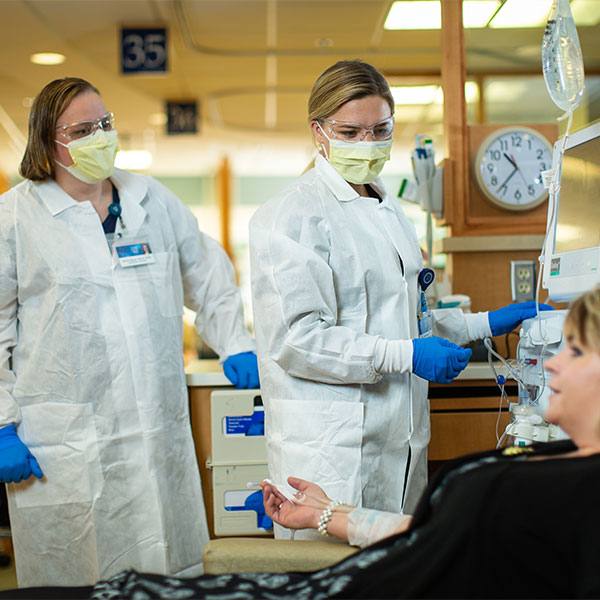-
Biotherapeutics
Mayo Clinic adopts regenerative medicine as field of academic rank
In a step that opens a whole new era of medical practice, Mayo Clinic has approved regenerative medicine as a field of academic rank. The decision will contribute to a new community of regenerative medicine scientists, physicians, engineers, administrators and health care staff equipped to advance new cures to address unmet patient needs. Regenerative medicine seeks to shift the focus from treating disease to restoring health.

"A stronger regenerative medicine community will enrich Mayo's academic, scientific and clinical leadership. When you have a community working together, the research is usually more powerful and effective, and that strengthens the practice," says Fredric Meyer, M.D., Waugh Executive Dean for Education, Mayo Clinic. "This new rank will also assist in the recruitment and retention of top physicians and scientists in this increasingly competitive field."
Mayo Clinic is a leader in a growing scholarly identity of regenerative medicine, recognized across the nation and around the world. Regenerative medicine educational programs have been deployed across all five schools in the Mayo Clinic College of Medicine and Science and involve over 200 faculty members. The college educates tomorrow’s biomedical leaders and Mayo’s future workforce. This year, Mayo Clinic launched one of the first-ever doctoral tracks in regenerative sciences within Mayo Clinic Graduate School of Biomedical Sciences. Implementing academic rank further bolsters Mayo Clinic's reputation as a trusted destination for regenerative research, education and clinical care.

"It's one more way of Mayo Clinic being at the forefront of medicine," says Robert Spinner, M.D., chair of Mayo Clinic's Academic Promotions and Appointments Committee, which approved the new field of academic rank. "It is a field that represents the future. I think the barometer is moving toward everything in health care being regenerative in some sense. Mayo is trying to reflect that in the academic ranks."
Regenerative medicine is projected to account for 10% of all patient care within the next decade. Recognizing that, Mayo Clinic has strategically invested in regenerative medicine as the future of health care. Since its inception in 2013, Mayo Clinic's Center for Regenerative Medicine has spearheaded the build-out of this emerging field with new services established in Orthopedics, Transplant, Physical Medicine and Rehabilitation, Sports Medicine, Neurology, Cardiology, and Obstetrics and Gynecology. In addition, the Center for Regenerative Medicine has been instrumental in recruiting staff specialists in areas such as Neurosurgery, Orthopedics, Hematology and Physiology that bring fresh regenerative approaches to practice.

"Regenerative medicine touches all medical, surgical, radiology and laboratory medicine specialties across Mayo Clinic. Establishing this new academic rank is like opening a new chapter in medicine. It is a key differentiator for Mayo Clinic," says Andre Terzic, M.D., Ph.D., director of Mayo Clinic's Center for Regenerative Medicine.
Elevating regenerative medicine to full academic level enables Mayo Clinic to recognize the academic contributions and scholarly activity of faculty members in the field of regenerative medicine, and their notable professional experience and achievements. That is another powerful way to show Mayo Clinic's commitment to regenerative medicine now and in the future as part of its "Bold. Forward." strategic plan.
Dr. Terzic is the Michael S. and Mary Sue Shannon Director, Mayo Clinic Center for Regenerative Medicine, and Marriott Family Professor in Cardiovascular Diseases Research.
####







